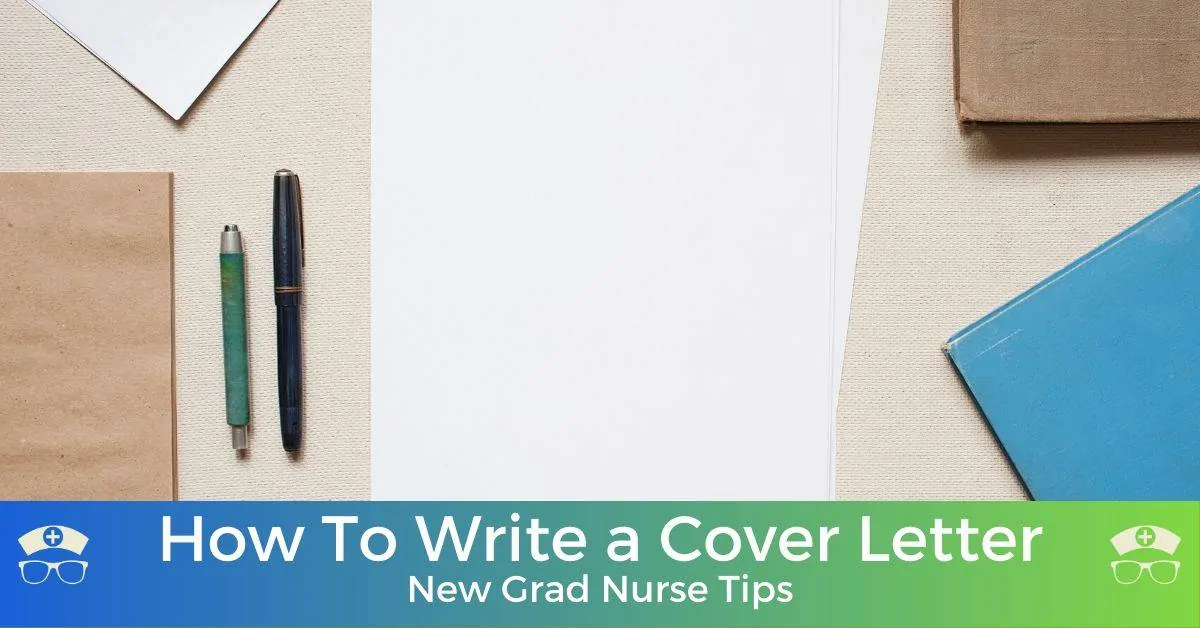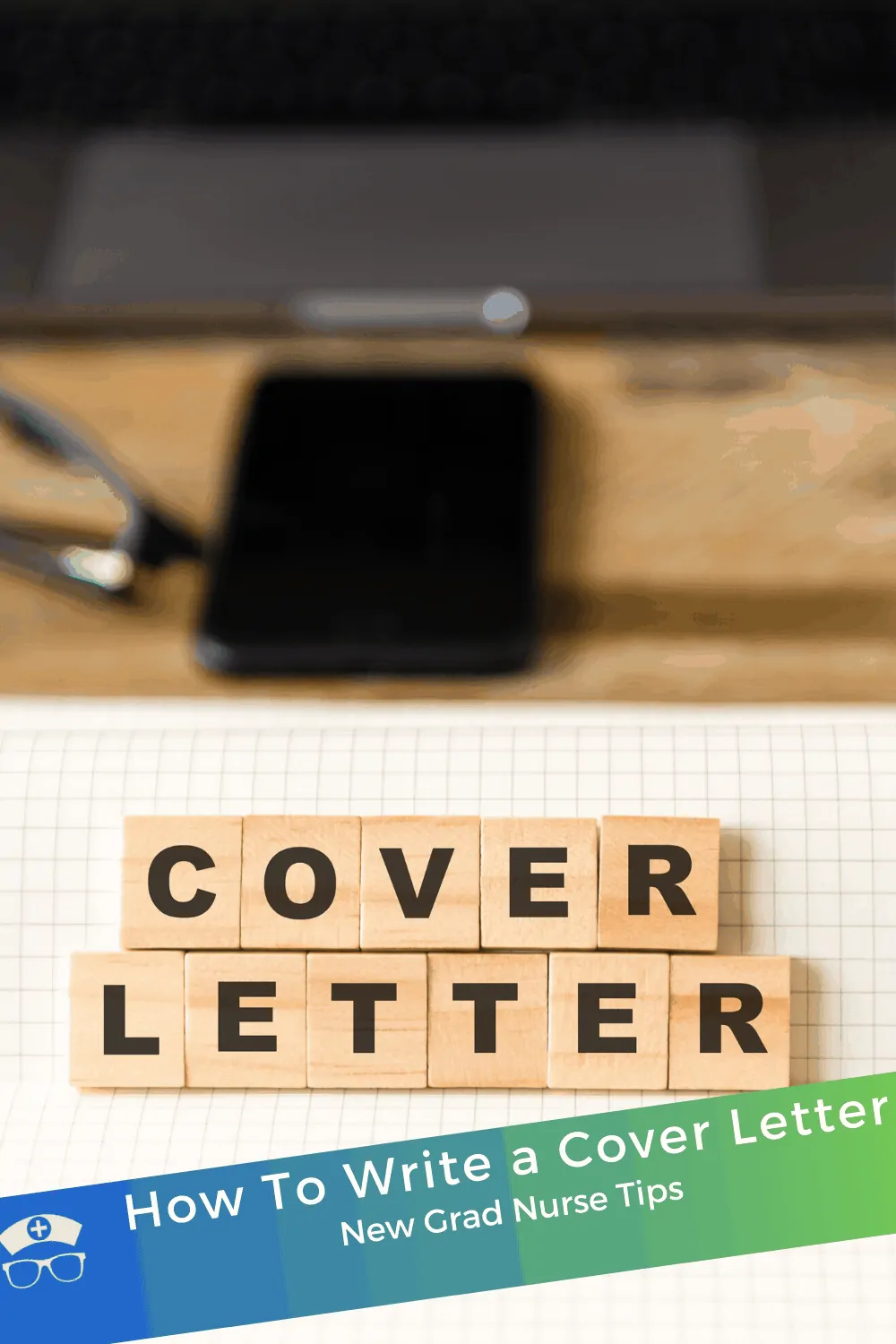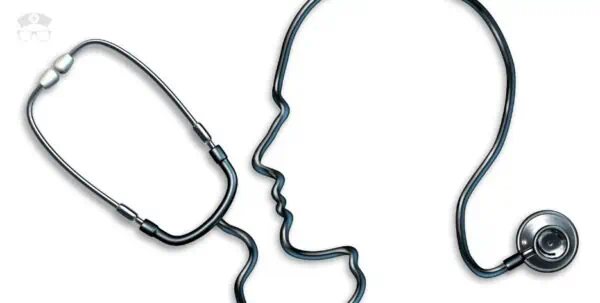In this guide, you’ll learn what to include in your cover letter and how to write it. You’ll also have access to example cover letters and templates.
You made it through nursing school and passed the NCLEX. Now you are trying to get a job. You’ll have to brush up on your interview skills and network like crazy. Another key part of landing a job as a new nurse grad is writing a killer cover letter.
Don’t freak out in anxiety as you stare at a blank screen. In this guide, you’ll find everything you need to know – what to include, how to write it, and I’ll even share some of my favorite templates.
What Is A Cover Letter?
Before we get into all the specifics, let’s look a little closer at cover letters.
A cover letter is your first impression to really explain why you are a good fit for this new job. A well-written one can move your resume from the bottom to the top of the pile and score you an interview.
A resume is all about you. It’s a list of all your experience and credentials.
A cover letter is all about them. It explains in a direct way why they should hire you and how you will benefit their team.
What To Put In A Cover Letter
When you write your cover letter, you need to include your contact information and explain why you are a good fit for their team.
Here’s a checklist of everything you need to include.
- Your name, address, and date
- Hiring manager’s name
- Company’s name and address
- Proper cover letter salutation (Dear Ms. Jones)
- Opening Statement in paragraph 1
- Describe your skills and experience and what you can do for them (paragraph 2 and 3)
- Showcase your achievements in the closing statement (paragraph 3 or 4)
- Complimentary Close with Your Signature (Sincerely)
Cover Letter Tips – How To Make Yours Stand Out
Writing a stellar cover letter will grab the attention of the hiring team and snag you that coveted interview. Avoid writing a dull letter that will cause them to just overlook your resume.
These tips will help you write a cover letter that makes them want to bring you in for an interview.
Create A Tailored Letter For Each Position You Apply To
Hiring managers can sniff out copy/paste templates. You might be applying to 5 or 6 different jobs at once, but don’t let your cover letter say that.
This is tough when you are a new grad nurse and every job you apply to is pretty similar. You can reuse the same letter, but make enough changes that it feels and reads like you are writing directly to them.
Research The Company/Hospital
This leads to my next tip: do your research. In your cover letter, write about how you are a good fit for their hospital/team and explain why.
In the body of the cover letter, share things like, “Community hospital has a holistic focus on health-care which I demonstrated when I volunteered at the women’s birthing center.” Show them that you care enough to know how to fit into their culture.
Don’t Echo Your Resume
The worst thing you can do is write, “as I said in my resume” and then rehash your skills and experience. They have your resume, they don’t need to read it twice.
Instead, you should expand on it and share more about yourself in a personable way.
“What my experience on my resume demonstrates is my internal motivation and drive to learn new skills quickly so I can help everyone around me.”
You can reference things that are on your resume, but use the cover letter as a way to explain why it’s so important for this new job.
Use A Clean Design
I can’t explain how important this tip is. Nurse managers are busy people, reading way too many cover letters every day. Keep your cover letter’s design clear and legible.
If you use a design or handwriting font that is difficult to read, it has little chance of even being read.
Use A Powerful Opening Sentence
Your opening sentence should grab their attention and pull them into wanting to read more. Need some ideas of powerful opening statements? This guide is fantastic.
Pull them in with something like, “As someone who is passionate about technology in health care, I am drawn to Community Hospital’s forward-thinking approach and would love to be considered as the newest nurse on your team.”
Share Stories But Keep It Brief
One of the best things you can do to your cover letter is to read through it after you write and cut out any unnecessary words. Being concise will keep the hiring manager’s attention and encourage them to read the entire thing.
The best way to do this is to use one strong adjective instead of stuffing sentences with 5 wordy ones.
For example, “My strong work ethic motivated me to never miss a day of clinicals.” That’s powerful. However, “I have a strong work ethic and internal motivation that propelled me to always attend clinicals with a positive and hardworking attitude, never missing a single day.”
They both say the same thing, but the first sentence is easier (and quicker) to read.
Keep It Chronological
Next, when you describe your experience and skills, share your stories in chronological order. This will avoid confusion and make your letter easier to read.
Start out with describing any skills you learned first, then build on those throughout the letter, finishing with your most recent experiences.
Use Active Voice Not Passive
Your cover letter should always be in the active voice. This gives it more strength and shows them that you are taking ownership of your actions.
Active voice sentences have subject + verb in that order. Passive voice have something being acted on it.
Here are some examples to clear up the confusion.
- I created a new system that improved efficiency. – Active voice, “I created.”
- The system that was created by me, improved efficiency. – Passive voice. “was created.”
End The Cover Letter Strong
Focus on the summary paragraph at the end of your cover letter. Make it strong so it sells your attributes and compels them to call you for an interview.
Close with your desire to hear back from them and remind them why you are qualified. Glassdoor has 5 solid examples you can take and personalized.
Cover Letter Examples and Template
Now that you know how to write your cover letter I’ll share some of the best examples and templates.
Yale School of Nursing has a helpful example. It explains what to say in each paragraph and how to design the cover letter too.
George Washington University also has an excellent document explaining how to write a cover letter and an example cover letter. I really like this one because it has tips, examples, and even lets you read a strong cover letter example.
Resume Genius is filled with templates. You can even use their cover letter builder if you don’t have time to design/format it yourself.
More Nursing Job Tips
Congrats on making it through nursing school! As you keep looking for a new job, here are some more tips.






